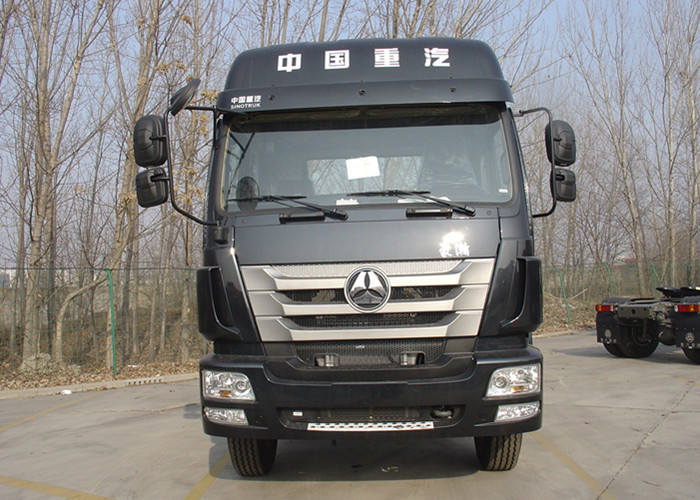When it comes to operating a tractor trailer, one of the most crucial aspects to consider is the gas tank size. The gas tank size affects everything from fuel efficiency to the range of your vehicle. In this article, we will explore the various aspects of tractor trailer gas tank sizes, helping you make informed decisions whether you are a truck driver, fleet manager, or just a curious reader.
What is a Tractor Trailer?
A tractor trailer, often referred to as an 18-wheeler or semi-truck, consists of a tractor unit combined with a trailer to transport goods. The size and capacity of the tractor trailer depend on several factors, including its gas tank size, which plays a significant role in operational feasibility.
Understanding Gas Tank Size
The gas tank size of a tractor trailer can vary significantly based on the make, model, and intended use of the vehicle. Understanding these variations can help optimize fuel management and reduce operational costs.
Common Gas Tank Sizes for Tractor Trailers
In general, the size of tractor trailer gas tanks can range from 50 to 300 gallons. The most common sizes are as follows:
| Gas Tank Size (Gallons) | Typical Use |
|---|---|
| 50-100 | Short Haul Operations |
| 100-150 | Regional Haul |
| 150-200 | Long Haul |
| 200-300 | Heavy Duty Applications |
Factors Influencing Gas Tank Size
Several factors influence the gas tank size of tractor trailers. Here are some of the most significant:
1. Type of Haul
Different types of hauling operations require different tank sizes. For example, short-haul operations may not need as large a tank as long-haul operations due to more frequent stops for fuel.
2. Weight and Load Capacity
The weight of the cargo being transported can also determine the appropriate tank size. Heavier loads may require more fuel capacity to ensure efficient transport over long distances.
3. Vehicle Efficiency
Fuel efficiency ratings can guide the selection of gas tank size. A more fuel-efficient truck might require a smaller tank as it can cover more distance per gallon.
4. Regulations and Compliance
Compliance with federal and state regulations can impact gas tank size. Some regions enforce limits on vehicle dimensions and weight, influencing how large a gas tank can be.
Practical Examples of Gas Tank Sizing
Example 1: Long-Haul Trucks
Long-haul trucks often have larger gas tanks, typically ranging from 150 to 300 gallons. This allows them to travel greater distances without needing to refuel. For instance, a freight company may use a semi-truck with a 250-gallon tank to ensure it can travel from Texas to California without frequent stops.
Example 2: Local Delivery Trucks
Local delivery trucks typically have smaller gas tanks, around 50 to 100 gallons. For example, a pizza delivery service might use a small tractor trailer with a 70-gallon tank, allowing for quick refueling between local deliveries.
Tips for Managing Fuel Efficiently
Proper fuel management can enhance the efficiency of your tractor trailer operation. Here are some practical tips:
1. Optimize Routes
Utilizing route optimization software can help determine the most fuel-efficient paths. This not only saves fuel but also reduces delivery times.
2. Regular Maintenance
Ensuring that a tractor trailer is well-maintained can improve fuel efficiency. Regular oil changes, tire inflation checks, and engine tune-ups can help you get the most out of your fuel.
3. Monitor Fuel Consumption
Using onboard fuel monitoring systems can help track how much fuel is used during a trip, allowing for better forecasting and potential adjustments.
4. Train Drivers
Training drivers on efficient driving habits, such as smooth acceleration and proper braking, can significantly improve fuel economy.
Frequently Asked Questions (FAQ)
1. What is the average gas tank size for a tractor trailer?
The average gas tank size for a tractor trailer typically ranges from 100 to 150 gallons, but it can vary significantly based on the truck type and purpose.
2. Can I modify my tractor trailer’s gas tank size?
Yes, modifications to the gas tank size are possible, but they should be conducted in accordance with safety regulations and after consulting with a vehicle specialist.
3. How can I improve the fuel efficiency of my tractor trailer?
Improving fuel efficiency can be achieved through route optimization, regular maintenance, monitoring fuel consumption, and training drivers in efficient driving habits.
4. What factors should I consider when choosing a gas tank size?
Consider the type of haul, weight and load capacity, vehicle efficiency, and any relevant regulations when choosing a gas tank size.
5. Do larger gas tanks mean fewer fuel stops?
Generally, yes. Larger gas tanks allow for longer distances between fuel stops, making them ideal for long-haul trucking.
6. Are there regulations on gas tank sizes for commercial trucks?
Yes, regulations vary by state and country, affecting the maximum size and dimension of gas tanks for commercial trucks to ensure safety on the roads.





